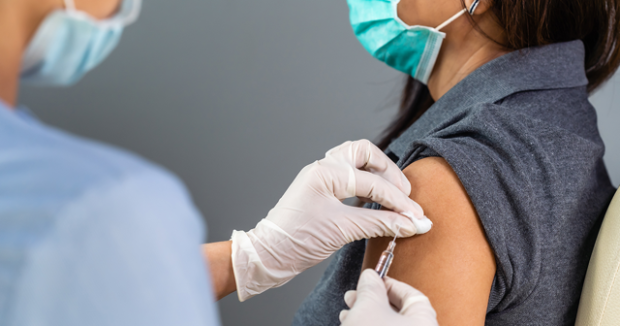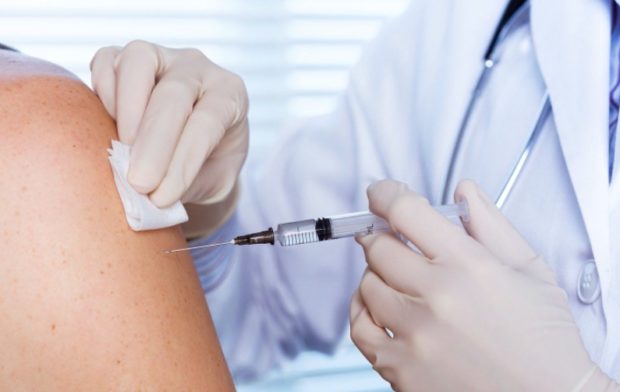PNIC 2021 highlights continuous efforts to build vaccine confidence in the new normal
Today’s adolescents are expected to shape the future. But to maximize their potential, the society needs to empower the youth by ensuring that they grow into learned, confident, and healthy adults.
Thirty million young people between the ages of 10-24 account for 28 percent of the Philippine population. Adolescent immunization rates continue to remain low, despite the success of pediatric vaccination programs.

In her talk titled Vaccination for Teens during the 2021 Philippine National Immunization Conference (PNIC 2021), Dr. Cecilia Llave, gynecologic-oncologist and technical adviser of the Scale Up Cervical Cancer Elimination with Secondary Prevention Strategy (SUCCESS) project of JHPIEGO, (a Johns Hopkins University affiliate) said that lack of access to healthcare compounded with risk-taking behaviors and low health literacy make them vulnerable to sexually transmitted infections like human papillomavirus (HPV) and Hepatitis B.
She laments that many teens in developing nations like the Philippines may have missed childhood doses. But unfortunately, it is also at this stage when the efficacy of childhood vaccination wanes. “We should target adolescents even though they look generally healthy,” Dr. Llave said.
She cautions that mothers who may have missed their routine immunization may be susceptible to rubella and measles, which may lead to congenital disabilities such as microcephaly, intellectual disabilities, and eyesight or hearing defects.
Furthermore, “Immunized adolescents will protect the vulnerable by contributing to herd immunity,” which is essential in battling highly contagious diseases like measles and polio.
“We don’t want any outbreaks just like the ongoing pandemic,” she said.
Re-emergence of VPDs amid COVID-19
The current pandemic has underscored the role of vaccines as an important public health strategy. However, Philippine Foundation for Vaccination Inc. (PFV) president Dr. Liza Antoinette Gonzales reminded that while we are dealing with the global scourge that is COVID-19, there are also other vaccine-preventable diseases (VPDs) that may result in further outbreaks if not addressed.
“The pandemic does not wipe out these diseases,” she warns. “We cannot trade one health crisis for another.”
This is reiterated by the World Health Organization representative to the Philippines, Dr. Rabindra Abeyasinghe, one of the keynote speakers during the event. He reported that the country remains a high-risk spot for re-emergence of VPDs, just like the polio and measles comeback in 2018.
He added an urgent need for a rapid scale up of immunization programs to help prevent large-scale outbreaks of VPDs, especially measles, rubella, diphtheria, and potentially, polio, as it is still in circulation globally.
The importance of HPV vaccination
Some parents may balk at the idea of giving HPV vaccines to their pre-teen daughters. But healthcare practitioners can’t emphasize enough the importance of giving the vaccine at an age before the patient is potentially exposed to HPV.
Dr. Llave shares that low-risk HPV types are the culprit behind genital warts, while high-risk HPV may cause six types of cancers, including cervical cancer.
Cervical cancer is the second most common cancer among women in the Philippines, with 7,277 new cases diagnosed and 3,807 deaths annually. Regular screening can help diagnose infection at an early stage, and HPV vaccine can prevent more than 90 percent of cancers caused by HPV.
Promoting vaccine acceptance
In his special message to the conference attendees, Department of Health Secretary Francisco Duque acknowledges that more work is needed to raise vaccine confidence for HPV, polio, and COVID-19.
That is why the PFV, through its annual PNIC, continues to raise awareness on the benefits of a vaccinated population, increase confidence and dispel hesitancy. Now on its 22nd run with the theme “Understanding Vaccination in the Midst of COVID-19 Pandemic,” the event gathers all stakeholders in the vaccine advocacy to exchange ideas, learnings, methods, and experiences on national immunization as the country grapples with the scourge of COVID-19.
ADVT.
